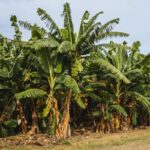The Bank of Tanzania (BoT) has cut its Central Bank Rate (CBR) from 6.0% to 5.75%, a decision expected to reduce borrowing costs and support critical sectors such as agriculture and trade.
The change was announced on July 2, 2025, following deliberations by the Monetary Policy Committee (MPC). It is being seen as a timely intervention, aligning with the country’s peak harvest season, when many farmers and small business owners seek additional capital for operations and crop purchases.
The CBR is a policy tool used by the BoT to influence the cost of borrowing between the central bank and commercial banks. By lowering it, the BoT makes it cheaper for banks to access funds—which should, in theory, lead to more affordable loans for consumers and businesses.
“This is the season when liquidity demand is highest—people need cash for farm inputs, harvesting, transporting goods, and restocking,” said BoT Governor Emmanuel Tutuba during the press briefing. “By adjusting the rate downward, we’re responding to the real needs of the economy.”
Also Read; Trump to Host African Presidents for Economic Dialogue
Governor Tutuba emphasized that this is a pro-growth measure intended to ease liquidity constraints in the banking system. More liquidity means banks are in a stronger position to extend credit facilities, particularly to sectors like agribusiness, transportation, retail trade, and informal markets that depend on seasonal lending.
The measure is also expected to stimulate:
- Job creation, especially in rural economies
- Household income growth
- Private sector investment
- Stronger performance among micro, small, and medium enterprises (MSMEs)
Despite the rate cut, the BoT assures that inflation remains manageable. Tanzania’s inflation rate stood at 3.2% during the second quarter of 2025—comfortably within the central bank’s target range of 3% to 5%.
“This gives us the room to stimulate demand without risking price instability,” Tutuba added.
The rate adjustment comes at a time when many central banks globally are cautiously navigating between stimulating growth and containing inflation. Tanzania’s case is unique, however, with an economy still highly dependent on seasonal agriculture and informal trade. As the BoT moves to support these segments, observers say the policy change reflects a keen understanding of local conditions.
“This is good news for farmers who depend on short-term credit, and for traders who need working capital,” said a financial analyst based in Arusha. “It shows the central bank is listening to economic realities on the ground.”







